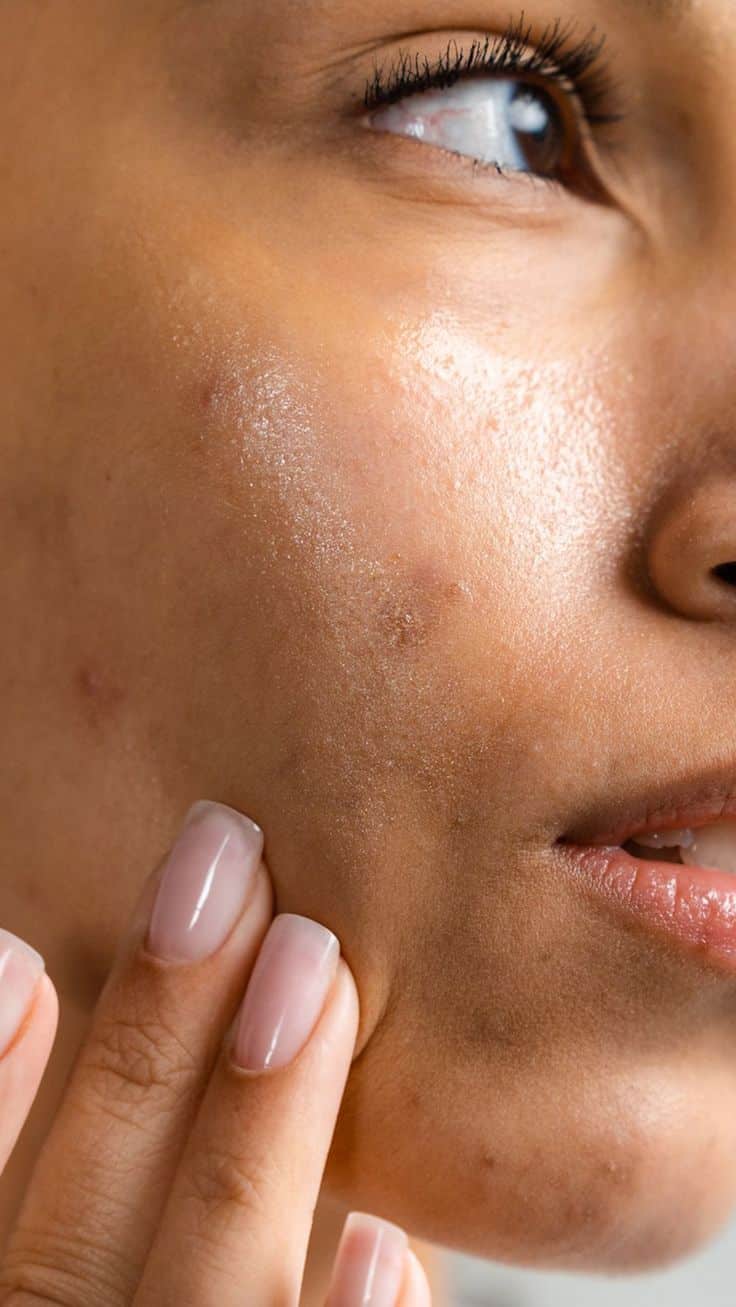Dry and flaky skin are issues during the winter, but what about oily skin?
Did you know that the colder months also cause oiliness on the skin? Yes, your skin’s sebaceous glands continue to produce excessive amounts of oil despite the cold winter.
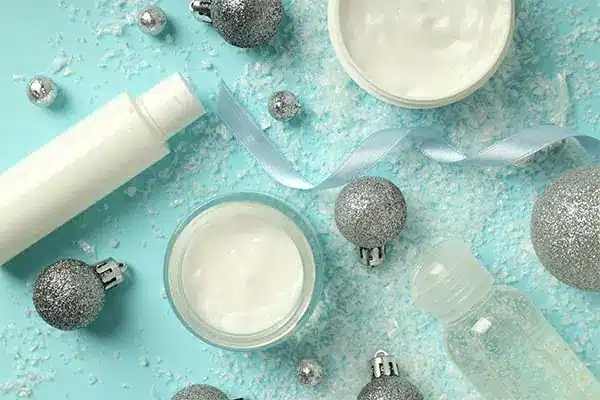
The good news is that all it takes to get rid of that extra oil is a solid winter skin care regimen. It does not, however, imply that you must stop using the goods you now use.
To find out more about wintertime oily skin care, keep reading.
What Makes Skin Oily?
The sebaceous glands are responsible for the production and secretion of sebum, which is a complex mixture of lipids. It helps to maintain the skin’s moisture levels and shields it from the effects of friction. There is a correlation between excessive sebum production and oily skin, which in turn leads to acne breakouts.
The body of a teenager, which is in the process of puberty, produces more androgen hormones, which in turn encourage the sebaceous glands to generate more sebum, which results in acne symptoms. Many variables contribute to oily skin, including the immune system and genetics.
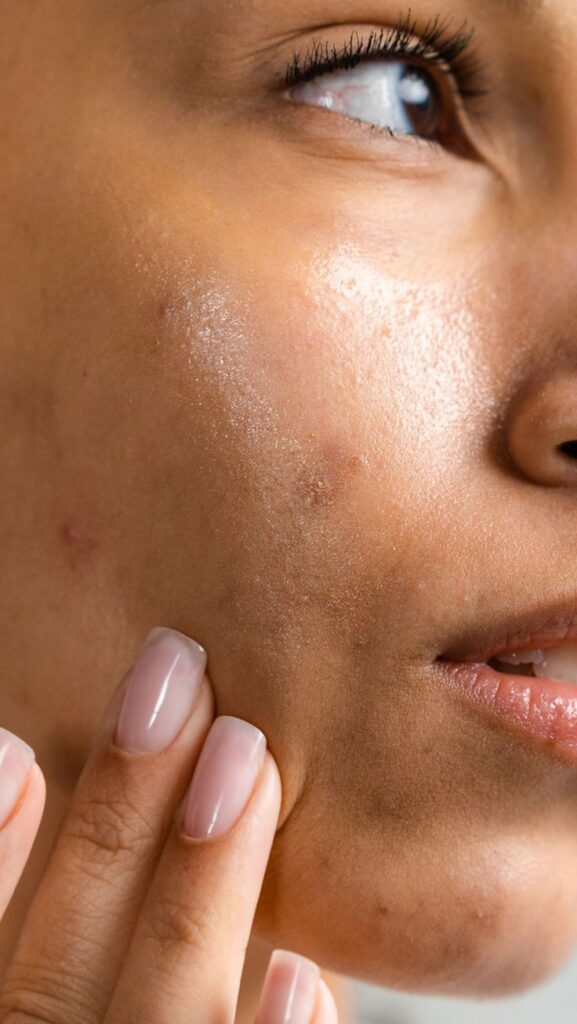
In the event that the layer of dead skin cells obstructs the entrance of the pores, the sebum is unable to exit, which gives rise to either whiteheads or blackheads. The inflammation that they cause can also cause them to develop into acne.
In parts of the body that produce an excessive amount of oil, such as the chest, shoulders, face, and back, acne can form.
How to Take Care of Oily Skin in Winter?
In the winter, people typically take care of their dry skin. On the other hand, the winter season is also associated with oily skin. It is recommended that you make some modifications to your skincare routine if you have oily skin. The best way to take care of your oily skin is to follow these guidelines.
1. Cleanse Using a Face Wash
You may take care of oily skin and acne that is mild to moderate by washing your face twice a day with a face wash that is soft and without harsh ingredients. The oiliness of the skin can also be reduced by gently washing the face.
The mild nature of facial cleansers prevents the skin barrier from being damaged and prevents sebum from overcompensating for the damage. It works to treat acne symptoms while also providing a thorough cleansing of the pores.
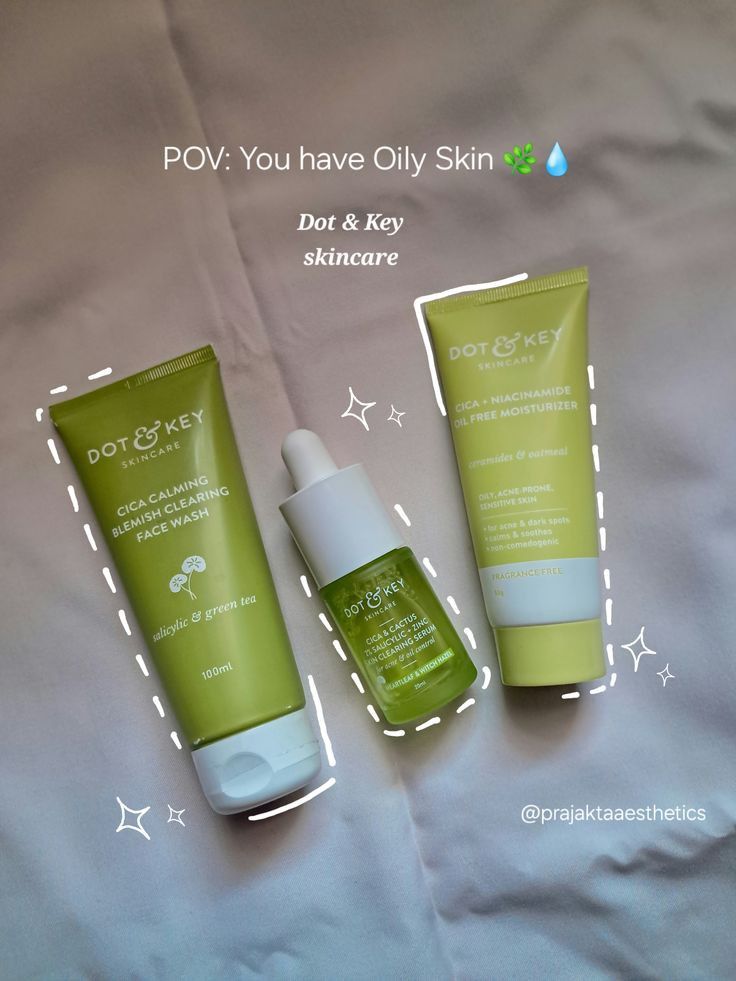
When washing your face with a face wash, it is important to remember to use cool water because hot water removes the natural oils that are found on your skin and diminishes the density and viscosity of the oil.
For those with oily skin, it is recommended to use cleansers that are bar or gel-based.
2. Apply Toner
After washing your face, apply a toner that gives your skin moisture. After washing your face regularly, you should use a toner as a second cleansing agent to remove any remaining makeup. In addition to this, they remove excess sebum to get the skin ready for the subsequent nourishing treatment.
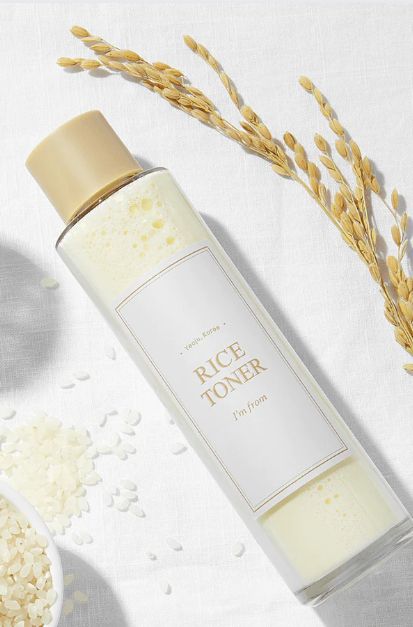
Because of its natural botanical anti-inflammatory and astringent properties, witch hazel is a fundamental component of the majority of toners that are designed to remove excess oil from the skin. Guava toners are also effective at reducing oil production on the forehead.
To lessen the oiliness of the skin, cosmetic products contain chemicals that absorb excessive sebum.
3. Apply a Water-Based Moisturizer
The moisturizing characteristics of petroleum jelly are exceptional, and they contribute to the prevention of water loss from the skin. When water evaporates from the surface of the skin, moisturizers that are based on water are able to cool the skin.
Some moisturizers contain menthol as an addition, which provides a cooling sensation and reduces the symptoms of itching. The oil may also be kept away from the skin by using this.
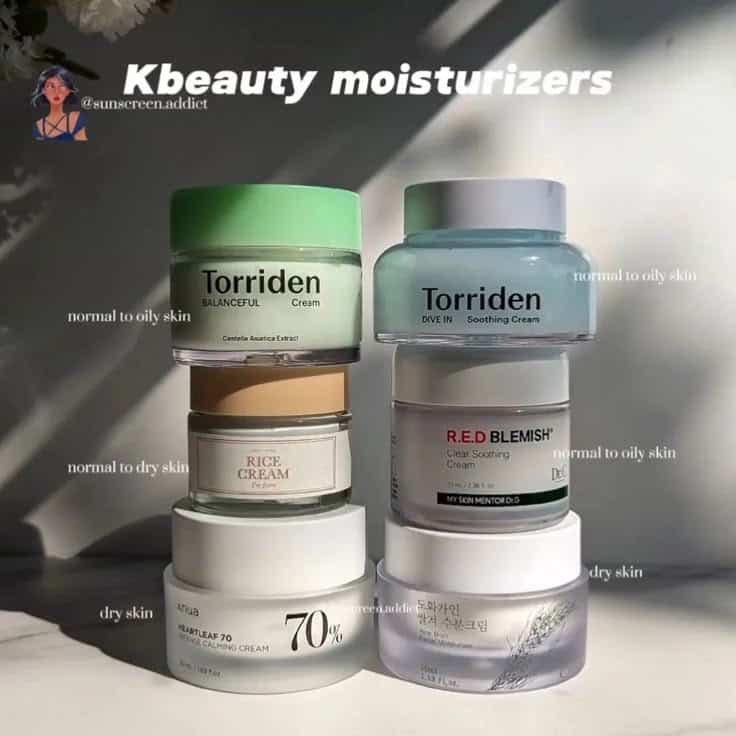
A further option for oily skin is to utilize derivatives that are based on silicone. Water-based moisturizers are recommended for oily skin throughout the winter months since oil-based moisturizers cause the skin to become oily.
4. Apply Sunscreen
When you go outside into the sun, you should always apply sunscreen to any exposed skin surface. Sunscreen reduces and prevents damage to the skin caused by ultraviolet (UV) rays, and it enhances the skin’s resistance to the sun.
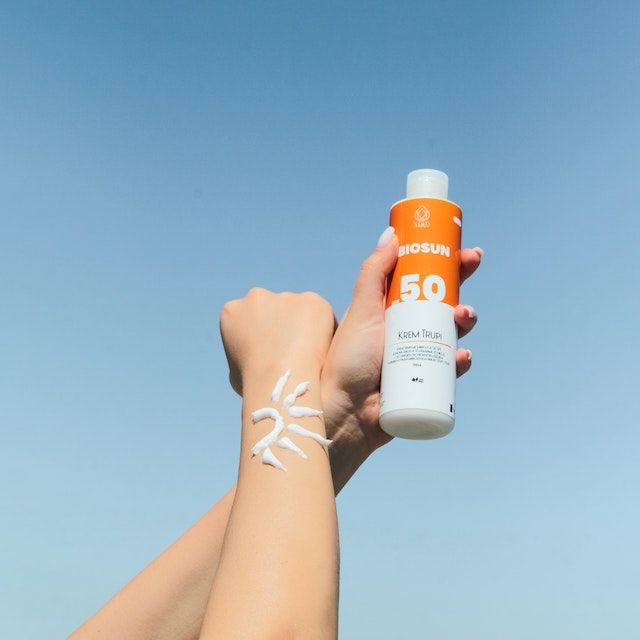
Sunscreen also reduces the amount of sebum that is produced, which helps to reduce oiliness on the skin. Gel or spray sunscreens are ideal for oily skin that is prone to acne. Sunscreens that are newly developed contain microfine particles that are both effective and safe.
Tea Polyphenols for Oily Skin
The active components found in teas are called polyphenols. DNA repair is improved by tea polyphenols, which reduce the amount of DNA damage caused by UVB rays. The production of sebum is also reduced, and acne vulgaris is treated with them.
Using skin care products that contain tea extracts, such as polyphenols, can help to improve the appearance of the skin while also soothing it completely. Consequently, the application of green tea extract topically minimizes the creation of excessive sebum, which is beneficial to the skin.
Additional Tips for Oily Skin Care During Winter

Follow these skin care tips during winter to manage oily skin:
1. Avoid hot showers
Heat causes damage to the barrier that protects the skin. When washing your body, you should avoid using hot water and instead use lukewarm or cold water.
According to the findings of a study, areas of the skin that were subjected to temperatures that were higher sustained more substantial damage. Prolonged and continuous exposure of the skin to water, particularly hot water, can cause damage to the barrier function of the skin and cause harm to the skin.
2. Use alcohol-free products
The use of alcohol and ethanol on skin that has been lacerated or abrased is never recommended. Gels or solutions containing alcohol (including seventy percent ethanol) do not affect the elasticity or hydration of the skin.
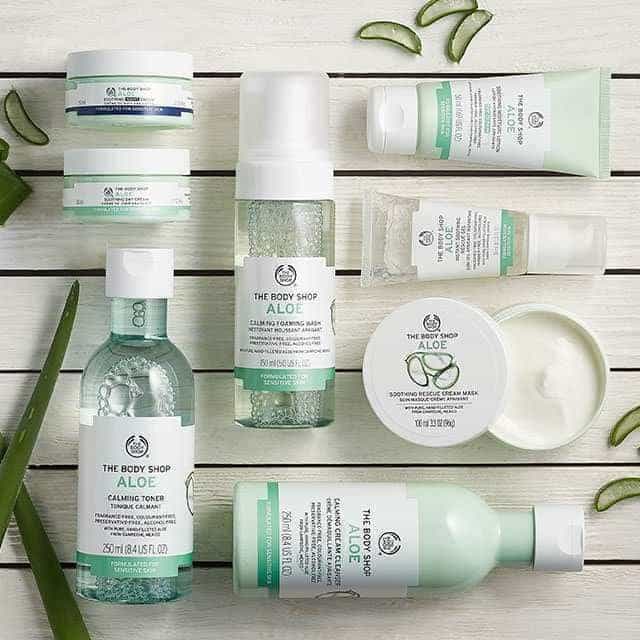
Poisonous methanol acetaldehyde, which is carcinogenic, and ethyl acetate, which is skin-defatting, are all substances that pose threats to the skin. Check the product label at all times to determine whether or not it contains alcohol.
3. Stay hydrated
To ensure that your skin is adequately hydrated, it is recommended that you consume a sufficient amount of water, at least eight glasses each day. Increasing the amount of water that you drink daily is beneficial to dry skin and helps improve its condition.

More than two liters of water should be consumed daily to considerably improve the physiology of your skin.
Final Word:
It is vital to use the appropriate skin care products on oily skin, such as face wash, toners, moisturizers, and sunscreen, regardless of the season. For example, face wash is essential.
An excessive amount of sebum production leads to oily skin, which in turn leads to acne. Managing it can be challenging because the application of particular products or doing nothing at all might cause the skin to become even more oily.
As a result, you should select water-based products, that do not include alcohol and are designed for oily skin. It is best to avoid items that contain oil.


